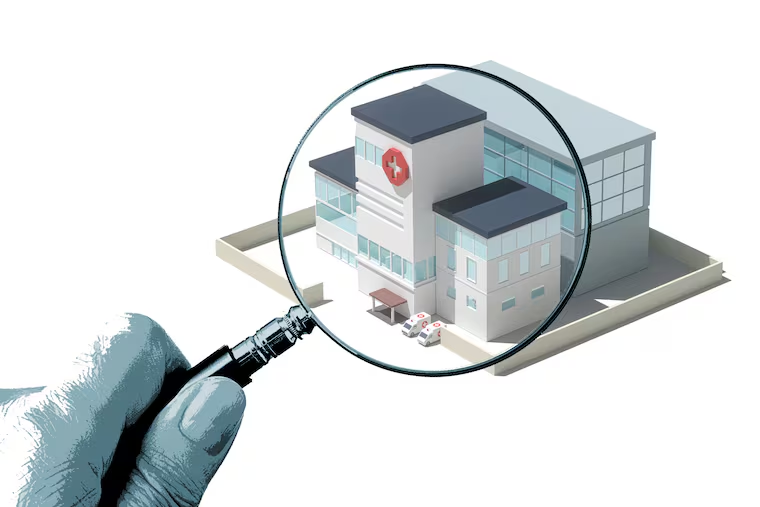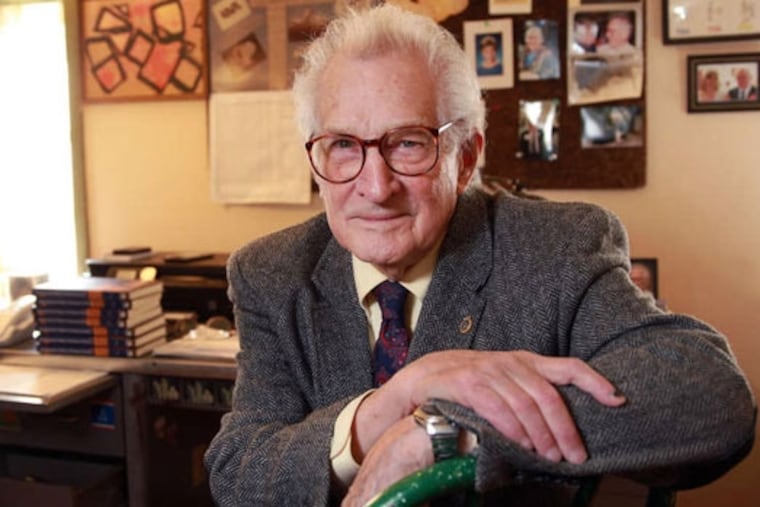Skip to contentJoanna Fong-Isariyawongse, The Conversation
Barry J. Jacobs and Julia L. Mayer, For The Inquirer
Joanna Fong-Isariyawongse, The Conversation
Joanna Fong-Isariyawongse, The Conversation
Barry J. Jacobs and Julia L. Mayer, For The Inquirer
John Lin and Jalpa Doshi, For The Inquirer
BriarRose Edwins and Hayley Goldner, For The Inquirer
Layla Bouzoubaa, The Conversation
Marcia Dunn, Associated Press
Adela Suliman and Kasha Patel, Washington Post
Marcia Dunn, Associated Press
Adela Suliman and Kasha Patel, Washington Post
Noah Robertson, Tara Copp, and Ellen Nakashima, Washington Post
David Ovalle and Cate Cadell, Washington Post
Geoff Mulvihill, Associated Press
Noah Robertson, Tara Copp, and Ellen Nakashima, Washington Post
David Ovalle and Cate Cadell, Washington Post
Geoff Mulvihill, Associated Press
{"ENV":"fGAEB3cyXQdVf3sFYD5SA39jaEBgDHQGf3BgCg==","CONTENT_BASE_PROD":"aFlWBFsLZwRUf1ldYFRSA3xwfE9jImAEf3NwBnQic1x8cGBAdiJzXHxzVk90MnBCf2NrXnQcc15rY2hAdxxnWXxzUk92ImABf2NrW3dUbEJ/cGAGdBx8THxaaE12IWNfa11/WndUYE8=","ARC_ACCESS_TOKEN_PROD":"VVldBmAxZAVrBHsDdAsFA3xzcE90InRMfGNkBXQidAF8WmRAdjJwB39gaE90HHQFf2BoB2AycEJ8TXwEdCJ4TXxgZ1tgMlZNfE1kT2AMdAB8YGhOYyFjXn9NdE5jMnxMfGNnXmMyd118Y2tbYDJ0BHxad1t0DGdYa2NST2MMd1l/Y39bYBx4B3xgd1p0InAHa2N4BmMic1x8Y2hNdAxnWHxjaE9jMWwGa2N3W3cxYAFoY1ladzFgTWtdYAd3InAHa1p3WmAyf1h8Y11bYDFwBQ==","GRAPHQL_KEY":"f1lzQFshBARVf2AFdjFSA39NYEB2MngHfE18BGAxbE18WnxAdAxWAX9NcAZ0HG9cf2N3WnQyeAVrYGBOYzJ3XmtdcAd3DFYGfHN8BmAccAFrXXhAYwtvX3xzZAd0C2wEf2BgBnc3CAg=","GATEWAY_URL":"VQVeB10+UQBoBVlOdyJaBGhdc1x3MXBNaE1zX3QieEJoY3ROdCJ3XHxNc150MXgGa2NgTXQiUkJoTXQCYzJkQn9dcAJjC3xPfnB7WmMLZ1h+cGRPYzJsCA==","GATEWAY_SLS_URL":"aGBWBVwMfE1rXVZNWi54A39wYEBjDGABfGN8B2MMZ1x8cGgHdAxkTWtdUkBjDHAGfF14QHQidAR/c1IHYAtjXX9wfEBjMW9ffF13W2AxYEJoXV1bdAt8Bg==","FEEDS_URL":"a2AIRlgiZwBTXVVCYyFaA39zXVtjDHRMfHNoB3YydE18c3AHdAxwBnxjeE9gDHNZfFp4T3QMc1x8cHRAdjFgTWhde1t2IngFfE1aT2AxYE98Y1JNYyF8QmtdVk50MlZMfF1aTWMxb11rXV1adwtvWXxweAo=","RESIZER_KEY":"aAV4BWMudExTXVVHYDFkA39jUk52MmdZfHNoBHYidAF8TWQFdxx8B3xzUkBjDHtcfGN8BXciY1xrXXQGdjFgT38FaE9gDFFda2N8TnYycEJoWmhNdwtgQmhjcE50C39Za2NwQHcRCAg=","GOOGLEANALYTICS_ID":"fAV8BVtVd0dTTWNBXS58A3xzaAd3IndZfFpoT2AMY19/Y3xAYDJgBH9geE1jMmwB","TWITTER_API_TOKEN":"VWBZA2BVRUB/Y2MBYwtSA3xaaE5gDHwEfAV4T3QxY15/Y3AGYyJ4T3xzcE12IWwEfF1WTXYie19rWnRPdxxvXGhdUkB3InwBfFpnWnYxYAZ8YHRPYyJ4BWtaZE93ImAGa114QGBUY15rWnRNdCFvWGtgd1t0VGBPf2BnXncxZ1xrWmBNdBxzXnxjc1p2MWwAa1p7W3QcZ19/YGNcYFRvWGgFd1x0InNcaAV3W2MhbAZ8Y2NeYBxeAWtje1x3VHtZa2BnXXYhZEJrY11bYwtvXX9wf19jMWAEfGNWT3QxeAFoBX9bdAtsTWtjd1pgMXBMf2BnW2MhZE1rXWdedAtsBmtwe1pgHHQBaAVgAnQhc1xrc1ldYyF7X2tzeE90C2RPaAVnXGMheAV+c2gCdiFkBGtjY1xgC3hCaE1SCg==","GOOGLE_CLIENT_EMAIL":"aGNwA2AIbAZQYEkDXD5sA3xwaAZ3MmNdf3B8BnQyYAB8Y3BPdjJwQnxzVk9gMnddf01wB3Qcc19rXWAHdDFgQnxgdAd3DHgGfHBjW3ciVgd/TXRNdCJ7X38Ff1t0DHtYfE13WnQLb11rY2NfdFRwTXxda1p0MXwAfHN3W3QLYABrYGNbdiJ4QmhaaAJgDHgAa2B8AmALb158TVJOdCFkAGtwYAo=","GOOGLE_PRIVATE_KEY":"a1l7RVwyXUdTf2tFXQt8A39aaAZ3MmNcf2N4B3cMZAV8c1pNYyJ7XH9zeE10DHtdf2NwTXcyfAV/YHRAdiJgQnxaaE13MmBCf2BgTncceE18WmAHdwxzXHxNWVtgMnAEfGNjWnQxYAd8cH9bYDJwTH9zZAV0HHgHa11oT2MMd1hrXWtdYDJgAXxja1p3MWABf3N8T3cicE18cHhNdiFjXnwFYE53InNfaAV4T3QLfAV8Y1pPdDFvWGtzWV10IWQBa3N3XHYye11rXWtaYyFkAWtzWVp0IWRNa2N0TmMhcAR8c2dcdwtnXGhga1t3VGxMfGN3XGMxeEJrY1VaYFR4BWhNe1xgDFIFa1p3XnYxf1hoYHteYzFwQmtgeE93VHgHaAVnW2MLeE1oTV1ddiF4T2tjZ112MXwAfmN/XGALY19rc1lediF8AX5gf1x0Illca2N8AnRUZAV+c1VfdzJSBH5zWgJ2InxNfE1WB3QcfAZ/Y1JAdjJ7XXxjZAZ3C2NYa2B8QGAyfEx8BWAGdzJ8TGtdaE1jIndcaF1aBnQcc1hrXXRAdjFsQnwFaE92MWNdfF1SQHcMZARrY1ZPYzFsBGtjaE90ImNca11VWmAMcAZ8XWQCdjJwAGtaZE1gHHhMa11WT3dUe158XXxPYFRgAGhgf1p0C3gBa2B3WnYiZ198Y11adyF4B2tgd1p3Ml1ea3N4T3cxeEJ8YGNcdAtjX2gFf1t0IWdca3NnX2Mhb118BWdcYAtsAGtga110IXAFa3NdX3Qyc19+cGNfd1RwAGhdc1x0MXgAa3N/X3cLf1hoBXdbdiFzXWtzXV5jMXhNa11ZXXQxfARrWntfdxxSAWtwf1t2MnAFaGBnXXQxfE9+Y3ADYAtnX2hNUgN2MXhNaAVjXXQyXV1oYGNbdiF7WWtga1xgC3ABfnN8TmAMdEx8YGRNYyJkBnxgaEBjDGAGf2B0T3QycAF8XVZNdyJwAXxdcEB3InNcfHNST2MMeAR8c1JPdjJ0BX9dYE53C2NcfHN8TncyeAZ8Y3RPYDJ8TXxgZE5gMmAFfE18BmMicExrY2NbYBx7X2tgdEB3DHBCfF1SBnQce198TXdbdxxwTGtjc11jIW9ea1p4T3cLZ1hoXVVdYAxwT3wFf11gMWdeaE1jWnQxeE9rcGtddiJZXnxzd1pjMWAFa2B8QGMxY11oTWtediJ4BmtzZ15gMWAFa1pnXXQLe118cHtcdjF7XmgFe1x3MWdZaGNrWnchYE9rYH9bYzF8T2hNWVp0MXxNa118AnYyZABrWnded1RgAWhdf1xjMXtfaFpnXHRUcARoTWdfdDJdWWhja150MXgFa11dXnYiXV1rc39ddwt/XH5jf1x3IXwEaF1jX2ALfAB8c2hOYBx4AXwFfARgHGQBfAVkTncMe1x8WnRPdzJ4AH8FYEB3HH9YfE1WBnQMfAV8BXtaYBxnWHxzWk12InQGfGN4T2MLY15/c1oGYwx4BmtaYE10HHRCa110QGAyfAV8XXRAdCJsQnxga1p2MW9ea2B7XGMydEJoTXtbdCJ4B3xjf190IW9YaAV7W3QLbAVrXWtcdCFjXnxzYE93VGNZf3NwTnQxY1lrWmBPYwtsTWtdY1p0C2xCaAV/XmBUfAdrc1lbdDFnXnxjeEBgMWBNfGNdW2MxY15rXXNfdwtvXGtjd15jIWxNa2NrX3che11rY1ldYyJwB35ze110VGwAaGBrW2AxZ1lrXWQDdwt8BmhNY150Il4Fa3NSA3YxY11rY3NeYAt8TWtzWgJ0IXBMfmBrW2MhbEJ+c11cYyFkBGgFd190IXgFa3BjXXciXkJoXXteYBxjXHxjYAZjMnNffwVkT2AcdEJ8TWtaYDJ0BXwFf1tjMmQHfF1ST2AccAZ8TXBOYwtgB2tdWgR3IWNda2BoT3YieARrXWtbdCJ3XHxaeE9gMnNZaF1dWnYidAZ8c3xPYBxgT2tja110HHddfGN7W3YxfAV8c2BAYAtjXGtdc1t3MnBMa2BjW3cicE18XV1edFR7WGtda1p2IWBNa3B7W3YyfAd8YGNbdwx4T2hjXV1jIWdea110TmMxZAVoBWtadjFjXWhNVV13HFIFfF1jX3QheAFrYGdadwxwBmtdc153C2dZa3B/XmMLeAVoYGNbYFRnWWtaa1tgVHAGa3NzXHYhcExoY1VcYwtnXGhaZAN2MWRNa11/XGMyXgRoYGddYwt8TGhaY110DF5NaAV3X2MheARoTVJAdiFzXmhgfANjDF1ZaF1oAnchf19rYH9fYyFkB2hafAV0DHRCf3NgQGAcbAZ8TXhNYAx7X3xzcE9gHHBNfE10B3cybE18c1ZAdBx/XXxjWk9jInxPfFp0TWMyd118Y39eYwxwQnxjVk12InhPfGBkT3dUbE1rXXtbdyFgTH9dc1p2IWwEfF1kT2MLYABrY11aYyJzXnxze1p0C3wEa117WnccdE18Y1pAdzFvXWtaf1x3VGAGa1pkB3cheE9oTVZAdFRgT2tgd112MnddfE1zWmMxY19/WmdcYyFgBWhNXV12MWRCa1p3XGMhbExrY2NbdyF/X2tzd1xgVGNca3NgT3QhZAFrYGdbdjF4AGhjd1pgC2QHa2BjXWALc1xrXV1adzFwTGhNd11jDHBPa1pjXXQxZ15oYHdcYzFwT2hdf19gMXNda3NnXmAcXk9rc2dedFR8AGhNWgJgVGddfnNaAncyUkJoXWdcYDFsBWhNeAJgC3hMfGNoTWMib158YGAEdAx3WH9wYE13DHdZfGN0QGAMZAF/BXhOYAx3XnxdfEB3IlZNfFpgTncMe11/Y2hOYzJzXmtdYEBgHHQGa2B4BXRUYARrYHhNYwtgBHxjdE90MngAf2B3XWMLYARoYGtaYDFvX2tja1t3IWAFa1p7WmAydE98Y3BAdyFzWGtaaEBgMndfaE1VWncLe1hrXXhAYzJwQnxzWV92IWBMa11ZXXchZE1rcHxNdCJ4AWtzWVtjIWNeaGB8T3QhZAF8cGhPdwt4BGhje112MXtca2NzXmMhc19rYHdfYAt7WGhjVVp3C3gBa11VXmMhcEJoY3gCdyFwBGhNa1t2MXgBa3N7XXQxZ1h+Y3NddxxZXX5jXV13VGQAa11dXXdUe11rc2dfdyFkB2hjaAJ0MXxMaGBrX2AyWV9+cH9ddAtnX2hgY1p2MllYaE1VWnQcZAZ8XVpNdAxjXnxjUgZ2InxNfGBgT3cMYEJ/TXgGdAxWB3xzcEB3HHAAfF18TmAMf158TXQHdiJnXHxNfEBgDHddfHNaT3cid158XWhAdFRgTGtda15jMWxCfGN0TnYxYE98XXxAYFRgBXxaf1t0IWQBaFp0QHRUe1h8Y3xAYzJ/WWgFeEB3MWBCfF1dXHcyZExrcHtddxx3WWgFf1x0MndZa3NnWnYidEx8cHdfdyFvXGtgfE90IngAaAV7XHYhZ1lrcHxPdyF4AX9NY1xjMnBMfHBrW2ALe1hrc1ldd1R4BmtaY1t0IX9ea11VXmMLcAZoY1JOdjFkT2hge15jIXhPa3B/WndUbAFoXXNcYwtsBmtwa1xgMX9ea2NaA3QxYAVoY2gDdiFnXH5je1x0C3xNa3B8T2BUcAdoTXwCdDFkT2tza11gMXAHa3B7XXQLc1x+Y2RPYDJ3XnxjYAR2IlYHfGNWBXcic1h8XWhPYzJ7WXxzc1t0HHtdf3NgT3YiYAV8Y2tbdiJ4Bn8FdE1jIWwFfGB8TncyZ1hrWntaYyJ8T3xwYE9jDHRPfHB4TmMLb1x8c3RPYFRsQmtaYEBjMnNca11zWndUY1l8TWBNYzJ8B2hgZ1tgC2wBa11VW2AyZEJrXVladDFnXWtzWVt0DGNZa1p3WnQxZ1x8Y1ladjFgBWtjdE9gVHhCa3BoA2Mhe1h8BWddYwtjWGtaf1t0IWdfa113XXQxZ15oWmNaYDFsT2gFfE9gC39eaGN3WncLe1xoBXdedjFgAXxNY1t3MXAEa3BjW3dUZ15oYGtediFjXmhgY1t2MWxCaE1oAnQxc11oBX9bYFRkAGgFe1xjDF5Ca1p3X3YhZ1hrcHdcdiJZWGgFe152MXxPfnNZX3dUf11oWndeYFRzX3xweE10HHxNfF10B3cycE18XXAHdAxRXXxdVkB3HHQHf2N8QHQieAV8c2hNdjJ0T2haYE93MmdcfHN3WmMMf1xrYHhAYBxwBHxgdE50IXBPfGB0QHcifE98YGtbdzJ0BnwFe1tjMW9Za11aB3QieEJrY2tadDJ3X3xwdE9gVGBCfGN4T3QMcAR/YHxAd1R4QnxweEBjMWwHaE17W3YidAR8BXdcdyF8T2hNY1x2IWAHfGB/XXQycEJrc2NbdFRvWWtjfAR0C2QAaAVjWnRUcABrWntfdCFzX2tge1pjC3tZf3BrX3QxbAdrYHdadFR7X2hje110VGAAaAV3W2BUb15oTXteYFR7XGhadEBgMXNYa1p0AnQLbE1rcGdbdCFwT2tgd19gVHAGaE1nXGMLeARoY11edwx3WX5wa1x3C2QGaGB0A2Mxe19rc11adyF8TWhjXV50DGNffF1wTnQydE9/XXROdBx/XnxadAd2MnNZf1p0QHQyZE98YHtaYDJ7WXxzUkB3C2BPfGNgTmBUbEJ/Y2NbdzFgQnxadE9jDHABa2NWQHdUbABrXVpPYyFwBWtaY1t0ImBMfHN3WmAMdAB8Y1VcdCFsAHxgZEB0MnAHa113Wncic198cGtbYDJzXWtgd1pjIWdcaGNjXXYhYABrcGtddiF4THxjf11gDHRCa2NwQHchcE9oTWBPdyF7WGgFa1tjMWNZa3B/W3QieE1oTV1eYFRkTWtzd15gVHgAa2BrXHQydE1rXX9cYFRsQmhdc1p2MX9YaGNrWmMhfABrc3tfYDFkQmhNf19jMWwFaAV3WmMhcE9rXWACdyJSTX5ze11jMWAEaF1VW3Qxe19+cGACdyFwBmhdXVt3Il1eaAVoA3cxfE9rc3ADd1R8B2hjWV92IXNdfmNoT3cieAF8XXBNYBxjWXwFYE13DHwAfAVgT2MMeE18YGRPYAx8B3wFdAR2MnNcfGNaTnQLYE98TXBAdiJ0BHxaeEB0DHNZaF1nW3Qye118WnhNdyFvXHxja1p3MnBNfHNkB3QcY1hrXXxNd1RjX2tad1tgVHtda11rW3dUYAB8Y1YHYzJ3WHxzVk9jMXgBa2B/XHdUYE1rY39bdCFsBmhjeE5gMnAGa2NnW3QLYAR8YGtaYyFkQnwFYEB0HF5Pa1pnX2MhZ1xoBXdcYFR7WXwFf11gVHAAa2BjX3QLbE9rXXtddDFwT2tgY1xgVHAFaF1zXWAxbEJ/c1lddyFwBmtje110MXBMaGNZXnQiXkx+c1ledBxeBmhdZ1xgMXxPaF1zWmAxZ15rc11dYAxdXn5jUgNjMXwEfGB4AmAxcEJ+c2NcdDF/XH5jfAN3VHhNa2NrXnQxfAF8TVJPdzJ4AH9jdARjMnQGfHN4TmMibEJ8TVYGdDJnXXxaaE10DFYBfHNoQHYydAV8TWQFdxxnXXxjWVpgMnBMfF1ZW2MyeAdrXWgGdxx3XGhgd1p2MWAAa11wQHQic19oTXhAYyJzXXwFfEBgDGAAfE13WnQceE9rXXRAdjFsBGtja1xjDHBCa1poBXQLbE1rY11bYAtjXmtjUkB2InABf3B8T3cxYARoYGtbdjFzX2hNc113DHdcfGNWT2Mhe1xrc2dcdDJSTGhNVVtgC2dfa3NWTmBUb11oY2dbYAt4T3xjYAJ0C3hPaAV3XHdUeE1rXWNbdjJzXWtzf1xjMWAHfmNdXXYhcExrc3RPdDFkTWhjZ110MXAEaGB3XndUbARrY1VedzF7XmtzXV13C3Nca3N7XXcxY1loBWdadzFnX2tzZ110DFIEaE13W2MyXV5+Y1oDdBx3XH9jWkBjInwHf1p4TnQie1l8XWROYwx4AHxjZEB3HHwHfE1wTXQyf15/TXgHdDJ8TH9gY1pgHGAFfHB8BXQcd1x8XVZPdwx0Bn9zYEBgHHdcfHNwT3YieAR/Y1JAdyJgAXxjdEB0MnwEfE1gTnYyf118TVYK","BLUECONIC_ENDPOINT":"UGBnAV1UAAZSWncFXRxaTWtjc190MmAEfmNkBXQiZE1oTXQHdDFgQnxwZAJ0MnBPaF1gT2MxeEJ/cGhNdDJ/WGtgaEB0DGdZf11gBnQcfE9rWmQFYwtvWWtzYAJjC3wI","BLUECONIC_STORE_ID":"fH93WVscf0JTWWcGWDJ8A39jdE9jMnQFf2B0BncceE9/Y1ZPYAxnWHxgaEBjDGNYa11STncMf15/TXRAdDJgAHxzUkB3DHNYfwV0BHQye198XVZNYzJsBnxNfE90InwAfAV0TWAMbExoWmtadjJ4TA==","BLUECONIC_KEY":"UARzB1sMUVtVYGteWyJaTWhjd1p0IlZCfGN0T3QxeE1oXXAC","BLUECONIC_SECRET":"fnN0TnRUAAVVY3cEdDFWA39afAV0MlZCf3NgQGAMdEJ8c3BAYDJ8TX9weE5gC3wAfGBgBXcibE98cHRAYwtvX39NUkB3MmQAa2B/X2Axf19/WmQFdAtjXXxNWgZ3HGBMa1p8BncBCAg=","AMP_AUTH_BASE_URL":"aARaT2AyUUd8BVZPWiJaQn5waAJ3Il5Cf11gAnQyVgV8XXNadCJgTWgFZE50InwGfE1kBWAMeE18c2BPdzFnXHxjc1x0C3wFfwV7XnQxc1xrY3RAYDJ7WX9NaAdjC3xMf2BnXWAMY1l8WnROYzF7XWtdeAZ3MntZfmBoA2MicAB8cGgC","AUTH0_DOMAIN":"U1l3WF0LY1pSf2MGYAh8A3xzcE93Inddf2NWB2Acd1h8cHRPYAx3XGtjdEB3MnAAa11gT2Myd1x8Y3BPdyJ0AQ==","AUTH0_CLIENTID":"a1ldAlpVcwBUWlVeWFQNA3xwZEB0HGdffF1ST3cMf1h8Y2AGdiFgTXwFdEBjMnQHf2BkB3cMZ198WntadCJzXXxzcE1jImBMfHBgTnQxb1lrWnhAdyJ8TWtaZAd3InAHfHNgT2M3CAg=","PIANO_ID":"f3NkAlguc0V/c2dddD58A39NaAZ0DFFdfHNWTXQydAZ/Y3QGdxxzX38FYAo=","MIXED_CONTENT":"fm9gAnchYAVUc3BAWwh4A39jUk90MmNcfGB0BnQyY118cGAHdCJkAXxzZEBgMmdcf2B3XmMiZAZrY1IHdwxnWX9waAdgDGAEf3BjXmBUb19/c3xAdjJ8T39aZE12IXAFaGNzWmAxbAE=","VIAFOURA_SITE_UUID":"fwVJRHQMbwBSWgUDYyFSA39jdAZ2ImNdfHB4BnQccEx/cGQGdxxgBHxafAZ3DFYGa2B0TnYiVgd/TWhNdAxkBHxaeAR0InNYfF1wBHcMfAV8XVIFdwxRXHwFd1p0Mntdf1p8TXcie1x/WnhNdjJ4BQ==","GOOGLE_CLIENT_ID":"aFpnRVhUZ19TBHBAdBxaQmhNcEB0Il4Ff2NgTXQhZEJ/XXNddyJgBGtjcANjMlYEf2BnX2MyYE18c3RAdCFkBWtjY1t0DGwEaFpkQGMye1lrWmRAdAxdWH9dVVxgDF5PfAVnXXQcXk98Y3xPYwt8QmtwaAZgC39ca3BnX3Qid1h8WmtcdCJ3X38FZEBjInNda11dXXQiY19/c39cdCJ/X39afE10InhCfE1WQHcyd19+Y3QCdDFsTXxNdE10MnRNfnNzWnYyVgV/c3dadDJSCA==","AUTH0_BASE_URL":"VX9nXWAIc0VSBFUGdiJaBH5zdE50IWRCaF1zXXcyYEJ/TXNedCF8BWhdYE10Ml5MfwVkQGMMYAR8WmgCdCFvWH9zYAR0DFFYfmN4TnQMUkJrc3QFdBxgT3xaa11gMllZfHBkT2MMZ1l/UAwK","CHARTBEAT_DOMAIN":"fHBrA1syVk1Qf1UDXVRkBH5dZ1t0InhNaGNgTXQxYAR/XXROdDJSQn9aaAd0MngFfFAMCg==","G_OPTIMIZE_CONTAINER_ID":"VFpGQGBUf0RVYHgDWyFgA3xaaE50DHdef2NaBXYieAF8XWAGdDJvWXxzYE5gAQgI","G_TAG_MANAGER_CONTAINER_ID":"fFpdRV0IRUNrf1VDdy5WA39daE50MntdfF1wBXcieE9/Y2ROdyJ4TH9ddAo=","SF_CLIENT_SECRET":"fmN0BlsuWgFTWndDdiJaBmhdcAZ3HGwEf113XXQifAR/TWdcdAx4BmhjVV10IWwEaF1kTnQMUgZ+c39bdFRgTGtdVV50MnAHf01VW3QMYE9/XWQCdCFgT39dYE53C3wHfmNoTncyfE98XXRNdwt4BGhdcAN0Il4HfF1oB3cLZARrXXBOYwxWBWhdc1t0ImBCfnNkB3cyZAV/BXdcdDFsTXxzYE90MnBNf110BHciXgB8XWddYAx0TXxADAo=","G_RECAPCHA_V3_KEY":"UFlzQXdVZ1xQWXBOYFRkA3wFdE1gMnAHf2NkBHQMdAR8TXBOdAxgQnxdeEB0MngGf2NWTnQMb1x8XXxAdxx8T3xjcAZ0InNdfFpjW2Mhb11rY1IHYwxwBHwFYAZ2InBPf2NSTWAccEx8Y2ROdAt7Xnxje1p0HHBMfE1gCg==","G_RECAPCHA_V2_KEY":"aFoIXlwuc1trXVJNdAxaTH5zc150DFJNaGN8TXQyYEJ8XWgHdzJWBHxjfAZ0DHwGaE14TXQMUkJ/c3gHd1RwBWtjZE50DHdZf3NwA3QybEJ8cGQFdCJgB35zcE93MnBCf018QHQyY1h8Y3QGYBxWTH9weEB3IngHaEAMCg==","GROWTHBOOK_CLIENT_KEY":"fmNaT3RUWQdrWWNfdFRsA3xzfAd3MlFef2NoBmMydAd8WmRAYBx4TX9zZAZgDGRNfGNgBHcyd118Y3BAdDFjWA==","SOPHI_HOSTNAME":"a1oIT3Y+eEx8BUUFdi5WA3xzVkBgMnBPfGNSBmAyYAR/c1pAdyJ0AWhaeEB0InBNa2B0QGAcZAdrXWgK","HTL_SCRIPT":"VVpJBHQic0BrBHNfWyFgA3xzaEBjMmABf2NgBHQcdAV8Y1JAYBxwTH9zdE9jInRPfFp8B3QyZEx/c3tbYDJgQmtdfE90DGAEa2NrWmMLY1xrXXgHYAxWBnwFaAZgMngEa2NZW3QxYAR8TXNbdzFsAX9dXV90MWwHa11STncif198cGtddyJ8BGgFf1x3VHAB","LIVEBLOG_WS_SERVER":"U3N/WXQhWU9oWXAHWwxaQnxdZAV0ImBNa2NgQHQyZE1+c3dadyFzWWtzd153ImdZfF1nXHQxYEJrXXRNdCFvXHxNdE90DHhCa2NkA3cMf1l8YGROYzF4CA==","SOPHI_SCRIPT":"a2AAW1gMf0F8YFVCXDFSA3xjZEBjDGddf2N8BncMfAB8cGAGYDJgTHwFfAZ0DHwGfHN4BnQic1x/cGRPYBxnXWtgZ1t3VGwEfF18BmAxYAZ8YHtadAt8TGtgZARjC2AGfF1dW3Yhb1hrYHdaYwtvX3xNcARjC2BMaFpkTXQLYARrYH9ddiJ0TWgFfE10VGwFaGNnWncib1h8BXddYwtkQmhNY112MXhMa11aCg==","STATS_WIDGET_CLIENT_ID":"f2BdRloybwdQWklPXTJaBX9zcAV0Ml5Na2N0QHQhZEJ/c3BNdDJgQn9dYE90MnAEfmNwAnciVkJ8XXQDdDJkQmtwaAZ0IWAI","_id":"56e4da9ee30766017e88cf157a1d8bdab6b705b7d338964b65d47a866174aef4"}























